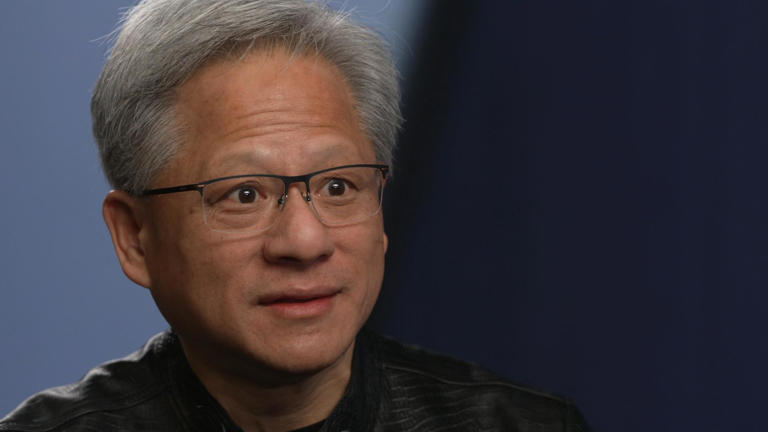Nvidia’s groundbreaking innovation with graphics processing units (GPUs) has had a profound impact across various sectors, fueling advancements in robotics, virtual production, pharmaceuticals, and beyond. The insatiable demand for Nvidia’s GPU-powered technology, particularly in artificial intelligence (AI) applications, propelled the company into the stock market stratosphere. It joined the ranks of esteemed tech giants like Microsoft, Apple, and Alphabet, becoming one of the few U.S. companies to surpass a $2 trillion market valuation.
In March, Nvidia unveiled Blackwell, its latest GPU, touted as the fastest chip ever designed for AI applications. CEO Jensen Huang expressed optimism about Blackwell’s capabilities, hoping for surprises in its performance. However, Nvidia’s journey from humble beginnings to technological dominance began in an unlikely setting: a Denny’s restaurant in San Jose, California. It was there that Huang and his co-founders conceptualized a new approach to processing video game graphics, laying the foundation for Nvidia’s future success.
Despite facing early setbacks, including a near-bankruptcy in 1996, Nvidia persevered and eventually introduced its groundbreaking GPU technology. This innovation not only revolutionized the gaming industry but also paved the way for AI-driven supercomputing, propelling the company to new heights. Today, Nvidia’s GPUs power a wide range of AI applications, from weather simulations to virtual movie sets and drug discovery.
Nvidia’s annual developers conference serves as a showcase for the transformative impact of AI. Attendees witness demonstrations of AI-powered innovations across various industries. For example, Nvidia GPUs enable Cuebric to create virtual movie sets instantly and affordably. Generate:Biomedicines utilizes AI to develop protein-based drugs for combating diseases like cancer and asthma. Additionally, Figure, a startup backed by Nvidia, is developing humanoid robots powered by Nvidia GPUs to address labor shortages in industries like manufacturing.
While investors remain bullish on Nvidia’s prospects, concerns about the societal implications of AI persist. Some fear that AI advancements may lead to job displacement and ethical dilemmas. However, Huang believes that AI can enhance productivity and prosperity, emphasizing the importance of human judgment alongside AI technologies.
In Huang’s vision, AI represents a tool for unlocking new frontiers of exploration and innovation, rather than a threat to humanity. With Nvidia at the forefront of AI development, the company is poised to shape the future of technology and drive progress across industries.
